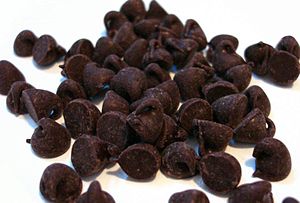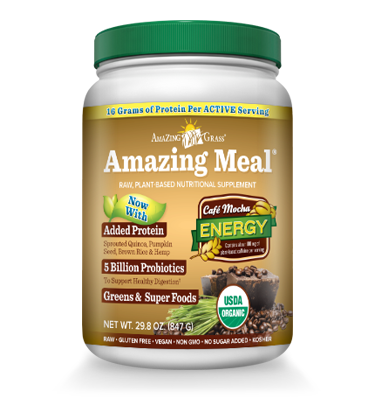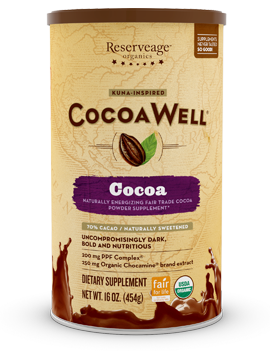 Who doesn’t need more energy? Who doesn’t love cocoa?
Who doesn’t need more energy? Who doesn’t love cocoa?
There are a lot of health benefits to consuming cocoa, as long as it is not ladened down with sugar and dairy as it might be in sweets and chocolate.
There are dietary supplements that will satisfy your cocoa urges without the calories and weight gain of consuming chocolate bars and cupcakes. They will even improve your health!
Cocoa is good for your cardiovascular health. According to the American Heart Association:
Epidemiological data demonstrate that regular dietary intake of plant-derived foods and beverages reduces the risk of coronary heart disease and stroke.
Among many ingredients, cocoa might be an important mediator. Indeed, recent research demonstrates a beneficial effect of cocoa on blood pressure, insulin resistance, and vascular and platelet function. Although still debated, a range of potential mechanisms through which cocoa might exert its benefits on cardiovascular health have been proposed, including activation of nitric oxide and antioxidant and antiinflammatory effects.
Good news for cocoa lovers like me!
We were sent two organic energizing cocoa supplements from Whole Foods to try. Both of these products are in powder form and are organic.
 [amazon_link id=”B00EFBI0XE” target=”_blank” ]Amazing Grass Amazing Meal Café Mocha[/amazon_link]
[amazon_link id=”B00EFBI0XE” target=”_blank” ]Amazing Grass Amazing Meal Café Mocha[/amazon_link]
What’s the secret to getting so much soy-free plant-based protein into our Amazing Meal? It’s our Protein Blend, which is a mix of organic brown rice protein, organic hemp protein, organic quinoa and organic pumpkin seed protein. Hemp protein can supply any diet with a vegetarian source of antioxidants, vitamins, minerals, fiber, and balanced gluten-free source of essential amino acids. Rice protein is an excellent source of vegan, hypo-allergenic protein that is an alternative to soy, without the animal products of whey. What’s even better? Amazing Meal is organic, cold-processed*, and gluten and dairy-free. Café Mocha adds the great taste of organic chocolate and coffee, with an energizing 100 mg serving of caffeine. *Guar gum, cane juice, stevia, and masking flavors have been heat treated.
 Reserveage Organics CocoaWell Naturally Sweetened Supplement Powder
Reserveage Organics CocoaWell Naturally Sweetened Supplement Powder
Makes a great post-workout supplement combo. Naturally sweetened with organic pure cane sugar and Stevia leaf extract.
How to enjoy your powder:
Add a scoop to your favorite protein powder or greens drink.
CocoaWell® supplement powders are available exclusively at Whole Foods Market.
Supplement Facts
Serving Size: 1 scoop (15 g)
Servings per container: About 30Amount Per Serving % Daily Value † Calories 50 Calories from Fat 5 Total Fat 1 g 2% † Total Carbohydrate 11 g 4% † Sugars 8 g Protein 1 g 2% † Calcium 18 mg 2% † Iron 2 mg 11% † CocoaWell® Proprietary Sweetened Cocoa Blend
Organic Pure Cane Sugar, Organic Fair Trade Cacao Powder
(Theobroma cacao bean), Natural Dark Chocolate Flavor, Organic
Cacao Powder and Organic Stevia leaf extract14.3 g ‡ Organic Chocamine® brand extract
Low-Fat Cocoa Extract [Theobroma cacao bean standardized
to 5% polyphenols (12.5 mg), organic flavors and organic
natural spices (ginger, allspice and cinnamon)]250 mg ‡ Pure Plant Flavanol Complex (PPF Complex®)
Proprietary Blend of Organic Green Tea Extract (Camellia
sinensis leaf) and Organic Catechu extract (Acacia catechu
heartwood) providing 25 mg polyphenols, 55 mg
catechins and 10 mg caffeine200 mg ‡ † Percent Daily Values are based on a 2,000 Calorie Diet. ‡ Daily Value not established Other Ingredients: Organic Sweet Cinnamon Powder, Organic Rice Bran Extract, Organic Ground Vanilla Beans, Natural Jurassic Sea Salt. Soy & Gluten Free, Non-GMO.
Chocamine® is exclusively licensed by RFI L.L.C.PLEASE NOTE: COCOA IS HAZARDOUS TO PETS.
I am not a big supplement powder person, as usually they are packed full of calories that would sustain me better if consumed as food. Many protein powders, for example, have 100 or more calories per scoop. Those may be good muscle building calories, but they sure add up. Both of these cocoa products are great ways to get the benefits of cocoa without the added calories. The CocoaWell powder has only 50 calories per scoop. The Amazing Meal packets have 90 calories per serving. This is a lot less than a chocolate bar 🙂
The American Heart Association explains the conundrum of getting the benefits of cocoa without the weight gain of chocolate:
Although many positive effects of chocolate and its ingredients have been documented in the cardiovascular system, precautions in its use are mandatory. Indeed, the high caloric load of commercially available chocolate (about 500 kcal/100 g) may induce weight gain, a risk factor for hypertension, dyslipidemia, and diabetes. Surprisingly, a study in 49 healthy women showed no weight gain after daily consumption of 41 g chocolate, 60 g almonds, or almonds and chocolate together for 6 weeks.98 Thus, weight gain may occur only with higher amounts of daily chocolate and/or its prolonged use. Furthermore, the occasionally high sugar and fat content of commercially available chocolate has to be considered. Because high sugar intake is associated with obesity, caries, and diabetes, cocoa-based products with no or low sugar content are certainly preferred. On the other hand, cocoa itself, unlike chocolate, can be recommended without hesitation because it is low in sugar and fat.
There is long historical evidence for the benefits of consuming cocoa. Latin countries have experienced and honored the benefits of cocoa when prepared in the home.
The American Heart Association states:
For centuries, cocoa-rich chocolate has been known not only for its good taste but also for its proposed health effects. Indeed, the Incas considered it the drink of gods, an association that gave rise to the scientific name of the cocoa tree, Theobroma cacao, from the Greek words theo (god) and broma (drink). The first hints of cocoa consumption date back to 1600 BC. In Honduras, archeologists uncovered elaborately designed bowls of this period that are believed to have been used by the Aztecs to drink liquid cocoa thousands of years ago.1 In the 16th century, Aztec Emperor Montezuma was a keen admirer of cocoa, calling it a “divine drink, which builds up resistance and fights fatigue. A cup of this precious drink permits a man to walk for a whole day without food” (Hernán Cortés, 1519). In the language of the Aztecs, this drink was called chocolatl. With the discovery of the New World, cocoa came to Europe in the 16th century.2
First evidence of a similar effect of cocoa was obtained in Kuna Indians, a native population living on islands off the coast of Panama. The Kuna belong to one of the few cultures that are protected against the age-dependent increase in blood pressure and the development of arterial hypertension. Interestingly, the Kunas consume enormous amounts of cocoa daily, sometimes even enriched with salt.9 Clinical studies revealed that the Kunas indeed have lower blood pressure values9 and no age-dependent decline in kidney function.10 Moreover, in this native population, mortality resulting from cardiovascular events is markedly lower compared with other Pan-American citizens (9.2±3.1 versus 83.4±0.7 age-adjusted deaths per 100′000).11 The factors involved are clearly environmental rather than genetic because this protection is lost on migration to urban Panama City, where the home-prepared cocoa is replaced by other food with a lower flavanol content.9
There are so many benefits to cocoa consumption, and supplemental powders make it easy. They have the added benefit of giving you some energy during the day, as well as improving your cardiovascular health. It’s no wonder ancient people worshipped cocoa!
[amazon_enhanced asin=”B00EFBI0XE” /][amazon_enhanced asin=”B00FBNKM4K” /][amazon_enhanced asin=”B004U771OW” /]
Leave a Reply